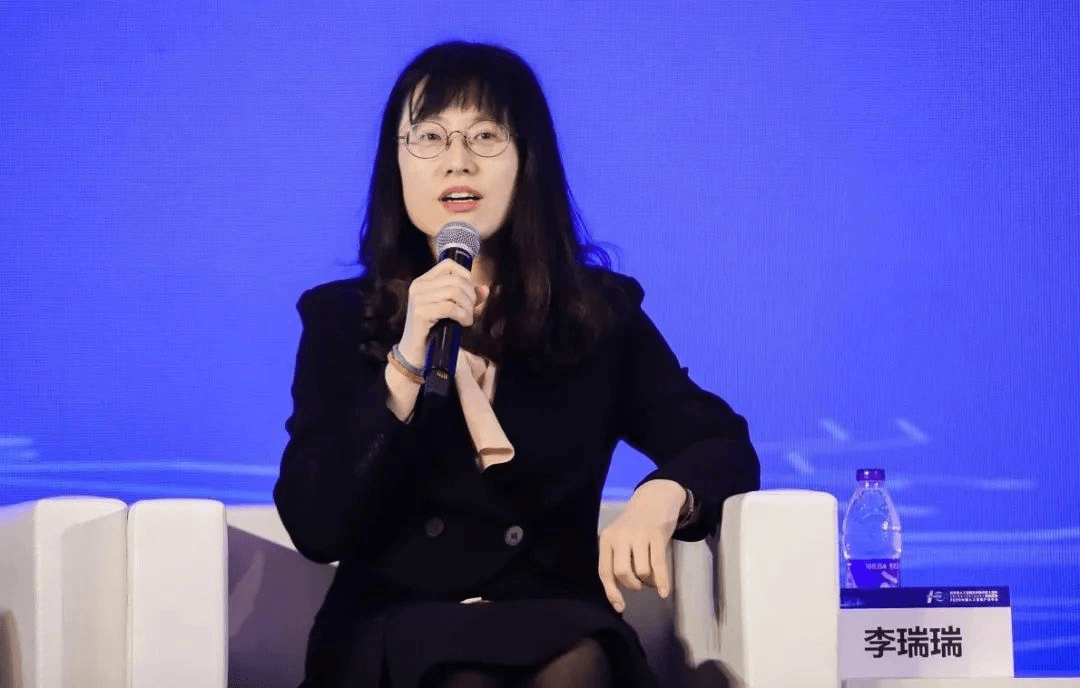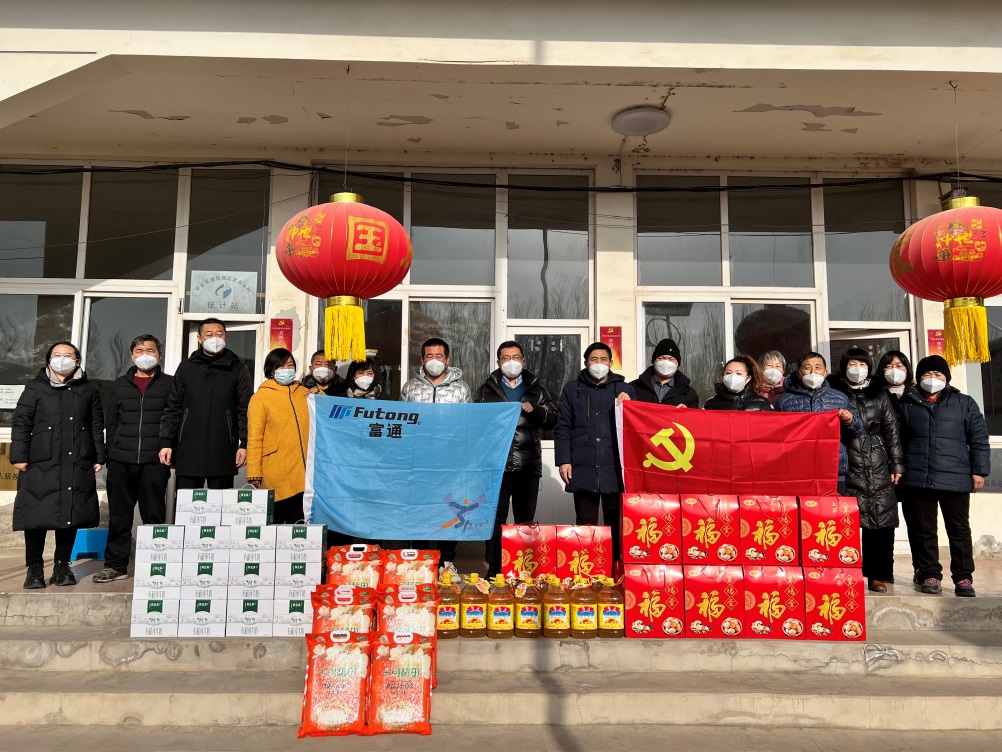Sourced from "China Science and Technology Network," written by Gui Kaidong.
On April 10, 2021, the project "Key Technologies and Applications of Intelligent Diagnosis and Treatment Based on Hybrid Cloud Architecture," led by Dr. Li Ruirui, Chief Architect of the Genesis AI at Futong Dongfang, won the second prize of the Wu Wenjun Artificial Intelligence Technology Invention Award. Recently, Dr. Li Ruirui was interviewed by a reporter from Science and Technology Daily, where they had an in-depth discussion on the development of AI technology and its innovative applications.
Dressed in a classic black work outfit, with large eyes, short hair, and delicate features, this urban professional would rarely be associated with an AI Lab's Chief Architect, except for the fact that she was in Futong Dongfang's office.

However, despite her young age, this technical expert holds a Ph.D. in Computer Science and Technology and carries multiple titles such as Head of the AI Lab and Chief Architect. She has published over 20 SCI papers and continues to make significant contributions to the field.
She is Dr. Li Ruirui, Chief Architect of Futong Genesis AI. Recently, another accolade was added to her list of achievements—the project she led, "Key Technologies and Applications of Intelligent Diagnosis and Treatment Based on Hybrid Cloud Architecture," won the second prize in the 10th Wu Wenjun Artificial Intelligence Technology Invention Awards.
Refining Skills and Empowering Hospital Operations with AI Technology
Why choose the challenging and often tedious field of artificial intelligence, especially in healthcare? Dr. Li Ruirui explained in an interview that "the development and application of AI technology in the healthcare sector have become crucial means to alleviate the shortage and uneven distribution of medical resources in China, improve patient service quality, enhance diagnostic efficiency, and innovate hospital intelligent service systems." The Chinese healthcare industry has long faced issues such as uneven distribution of medical resources, a significant gap between supply and demand for doctors, a high rate of diagnostic errors and missed diagnoses, and low patient service quality and satisfaction.
In her view, AI technology is an essential tool for addressing real-world problems. With the empowerment of AI technology, various industries are experiencing revitalization, bringing continuous surprises to society. For example, scheduling is a routine operational management task in hospitals. Although it may seem simple, scheduling is, in fact, quite complex. For those responsible for scheduling, the rationality of the schedule directly affects business alignment and personnel interests.
As a national-level center for difficult and critical emergency treatments in Western China, West China Hospital has a busy emergency department. The current manual scheduling model requires the scheduler to communicate offline with rotating doctors, making it challenging to track the dynamic data of these doctors. Moreover, the scheduling rules are complex, and with a large number of rotating doctors, the scheduler spends considerable time developing an acceptable schedule.
To address West China Hospital's actual business needs, Dr. Li led her team to establish an intelligent scheduling system based on their multi-objective resource optimization algorithm platform. This system is built on the offline duty scheduling process of the emergency department, forming a unified database of doctors and scheduling information. By dynamically matching business rules with the actual circumstances of the doctors, they designed an information management system that meets the scheduling requirements of doctors and the emergency department.
The multi-objective resource optimization algorithm platform on which this system is based is an enterprise-level resource planning and scheduling platform developed by Futong Genesis AI. Originating from multi-objective optimization theory, it primarily addresses resource allocation and planning scheduling issues. It is the first to combine multi-objective optimization theory, AI algorithms, and knowledge reasoning technology to construct multi-objective decision optimization models for various business scenarios. This platform can generate precise and feasible optimization solutions within a specified timeframe, solving multi-objective optimization decision problems under multiple constraints.
Daring to Tackle Tough Challenges: Enhancing the Intelligence of Airport Resource Management with AI Technology
Speaking about her work, Dr. Li Ruirui told a reporter from Science and Technology Daily, "Being at the forefront of artificial intelligence technology, I must approach my work with an extreme attitude, diligently researching and striving for excellence." Indeed, she not only says this but also practices it. With a significant increase in passenger and cargo throughput at Beijing Capital International Airport, the carrying capacity continues to expand, and the pressure on resources is continuously rising. The airport aims to change the existing ground resource operating mechanism by constructing an intelligent resource management system, achieving full visualization and digital management throughout the process, as well as on-demand customization of resource management functions, thereby enhancing overall resource management efficiency.
Time is efficiency, and tasks are missions. Under her leadership, Futong Genesis AI built the Intelligent Resource Management System (referred to as the "iRMS System") for Beijing Capital International Airport based on its multi-objective resource optimization algorithm platform, combining the airport's demands for business innovation and upgrades. This initiative breaks the long-standing reliance on imported software products for RMS systems in large domestic airports.
"It is very challenging to change the traditional ground resource optimization mechanism while ensuring the safety and controllability of airport operations and achieving full visualization and automated management of smart airport operational resources in a complex environment with numerous conflicting rules," Dr. Li said. On one hand, it is necessary to manage and schedule all apron resources, boarding gate resources, baggage carousel resources, and check-in counter resources at the airport, and timely report the resource allocation status to the outside world. On the other hand, it is also essential to support intelligent resource allocation and provide analysis and statistics on allocation outcomes, as well as sandbox simulations.
Next Ambitious Goal: Empowering a Smart Winter Olympics with AI Technology Achievements
During the interview, the reporter learned that Dr. Li Ruirui's team is involved in the smart medical support work for the Winter Olympics, and my intuition told me there must be unique and exciting stories behind it. Sure enough, Dr. Li revealed to the reporter that, in addition to the roles previously mentioned, she also holds the special position of Director of the General Guidance Group Office for the "Key Technologies for Smart Medical Support for the Winter Olympics" project.
According to reports, this project has already implemented several artificial intelligence technologies, such as knowledge graphs, expert recommendations, 5G, robotics, digital middle platforms, and graphic and image medical imaging technologies, providing efficient and accurate medical support for the 2022 Winter Olympics and Paralympics.
"It is my honor to contribute to the Winter Olympics!" Dr. Li said. As an artificial intelligence technology company, Futong Dongfang applies research achievements in cutting-edge technologies such as knowledge graphs, algorithm models, OCR, NLP, neural networks, and deep learning to innovative business practices in the industry, actively promoting the implementation and application of intelligent technologies across various sectors.
AI is developing rapidly, and Dr. Li continues to make progress, but her original intention and determination remain unchanged. "In the future, I will continue to leverage my technical strengths, stay true to my role, and maintain my essence, taking one step at a time with a spirit of craftsmanship and leading by example through my actions, continuing to cultivate and contribute my youth to empowering AI across various industries," she said.







